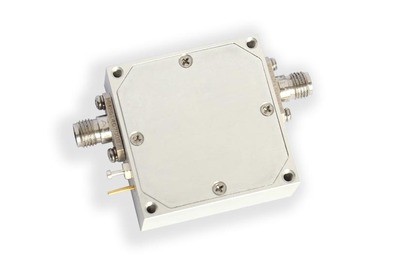Because operating temperature determines the reliability of microelectronics, it is critical that GaN devices maintain thermal resistance. Notably, the industry's first GaN transistors using GaN-on-diamond wafers, which substantially reduces semiconductor temperatures while maintaining high RF performance.
The Defense Advanced Research Projects Agency (DARPA) lauded GaN-on-diamond research program, which realized breakthrough results in managing how heat affects critical RF devices. Among many potential applications, DARPA anticipates use in military radios and a wide range of electronics that utilize amplifiers.
Simply put, the results were exciting — proving a three-fold improvement in heat dissipation, while preserving RF capabilities. This achievement supports reduced technology sizes or increased output power by a factor of three — very useful information for making equipment smaller and/or more powerful.
According to DARPA program manager Avram Bar Cohen, "Almost any RF system could benefit from the combination of higher power, higher efficiency, and reduced size enabled by GaN-on-diamond amplifiers."
Partnering Under the NJTT Program
demonstrated this GaN-on-diamond achievement in conjunction with partners at the University of Bristol, Group4 Labs and Lockheed Martin under DARPA's Near Junction Thermal Transport (NJTT) program. The NJTT was the first initiative in DARPA's "Embedded Cooling" program that includes the ICECool Fundamentals and ICECool Applications research and development.

 闽ICP备2021005558号-1
闽ICP备2021005558号-1Leave A Message